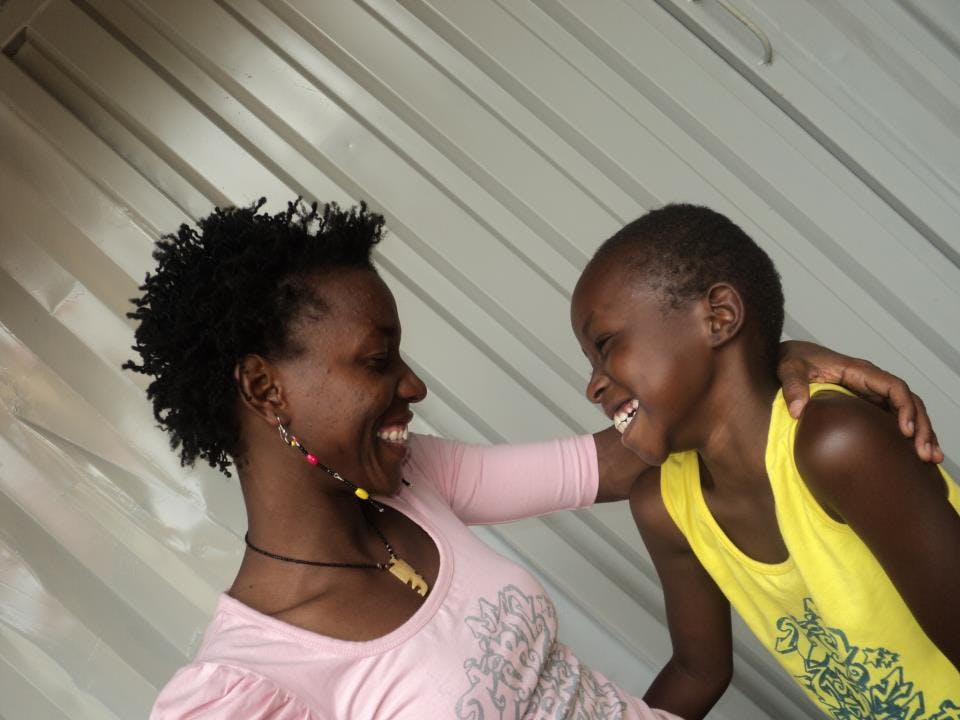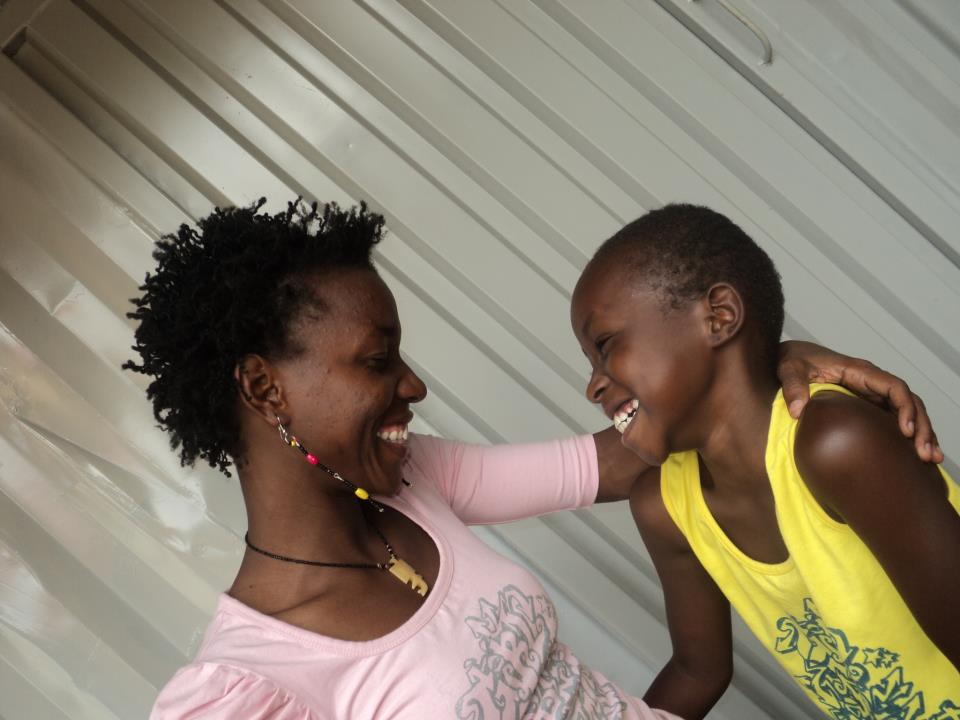Nanyonga Rehema: Celebrating and uplifting Girl In Real Life
Jan 21, 2015
Story


Nanyonga Rehema is an extraordinary petite girl of just 20 years. She usually wears tank tops with ankle-high hip hop colourful shoes and carries a small black satchel. She is known as Remy. Remy lost her mother at nine years, to HIV/AIDS. “I never saw my father,” she says of the other parent. At sixteen, living with an auntie in Nsambya, she was introduced to hip hop through the Break Dance Project Uganda. “I had been suppressed.” She found freedom and friendship on the dance stage and now dances to empower other girls.
Her auntie sent her away from the home. She could not tolerate a girl that danced, a girl that interacted with boys. “She thought I had sex with them. Many women in the family had got pregnant at an early age.” Without a home again, she was lucky to find an old friend who would take her in. “An old, old friend let me stay at her place.” This “old, old friend” is not a person she had known for a long time, but rather an older woman in the community who gave her shelter. Remy would gather girls around the community to teach them dance, listen to their stories and help them with their homework (for those that went to school). She was just 16 and going door to door, talking to parents and explaining her passion. Some parents understood, some did not care while others did not get it. Regardless, every day, little girls in Nsambya told their caretakers “I am going to Remy’s.” At “Remy’s”, she helped them with their work and she taught them to dance. Most of the girls were not in school.
In October 2012, she decided to turn it into a formal project calling it Girl Be Project. “That was not really the name of the group. It was something that I always said to myself. “Girl Be.” That’s why it is not “girls”. It was my mantra,” she explains. In Girl Be, it now stands for “Girl In Real Life Breaking”. She turned it into a full-fledged project because the original informal setting had exposed her to more girls who shared her story. “I am not the only girl who had to drop out of school. I am not the only girl who lost her parents. And, other girls like to dance.” She met more school drop-outs and young mothers, and she wanted to create the structured program for them.
Remy says that Girl Be Project has about fifty beneficiaries. “We have so far been able to buy school requirements for them all.” The girls have tried to do arts and crafts for money, but most of the time they are short. In these cases, Remy covers the costs through her personal ventures. “I do laundry for people. I also get money from dance performances and from friends,” she elaborates.
The group was also able to find sponsors for three girls who can now go to school. Remy was also able to enroll into Institute of Advanced Leadership in Nsambya where she studies Community Psychology. About the course, she simply says, “It is my dream.” Her eyes shine when she says this and even when she doesn’t say anything more, her soft voice and intense look says everything. She has just finished her first semester and does not even know where she will get the UGX 450,000 for next semester’s tuition. “I had a lady who helped me but she stopped,” she says, before she adds that she is not worrying about it because all she can do is “exploit the present and the future will take care of itself.”
She wants to help as many girls as she can. And even with her own education in balance, she expanded her project into another economically-deprived area, Namuwongo on 15th April. Twelve girls, aged 14-20 years, showed up for the launch. Twelve girls will find friendship in dance and in their petite mentor.
As an orphan, she had to fund her own education and as a girl devoted to her community, Remy has found more girls like her and through dance and helping with homework, she has overcome barriers for them. She found confidence and a reason to be in dance. She mentors and gives the same confidence to girls. To meet and know Remy is to come face-to-face with a human version of everything our community should be. She is the more aware, the stronger and the better version of us.




